Incomplete food waste collections – Wednesday 16 April 2025
If you are on our food waste trial, we apologise for not completing the collections today as this was due to a vehicle breakdown.
However, we will be returning tomorrow (Thursday 17 April) so please leave your food waste container out for collection.
We apologise for any inconvenience caused.
Recycle more and waste less this Easter
Planning for a low waste Easter? From recycling Easter egg packaging to reducing food waste, we have some ‘eggcellent’ tips and advice to help.
Easter egg packaging

Most Easter egg packaging is recyclable, but it isn’t always simple. Just one Easter egg can contain at least 4 different types of packaging. Here’s what to do with it:
- Cardboard box – flatten and recycle in the yellow bag
- Plastic moulding – recycle in the red box with your plastics, cans, and tins
- Foil – recycle in the red box with your plastics, cans, and tins
- Chocolate bar / sweet wrappers and bags – recycle at most major supermarkets
Remember, we should always try to reduce our waste before we look at recycling it. Buying wisely and choosing eggs with minimal packaging can help. You could also try making your own Easter treats - saving you money and space in your recycling containers!
Easter cards
Around 20 million cards are sent and received at Easter in the UK. That’s a lot of paper, resources, and miles!
Reduce your carbon footprint by sending an e-card or social media message to friends and family instead. If you do choose to send a traditional Easter card, try to buy cards without glitter and bows so they can be easily recycled.
Easter cards can be recycled in the yellow bag with your cardboard - just take care to tear off any bows or glittery parts. You could use these to make your own cards next year, otherwise they should be put in the black bin.
Most paper envelopes can be recycled in the blue bag but please recycle any brown envelopes with your cardboard in the yellow bag.
Tackling food waste
Every year, UK households waste 4.5 million tonnes of edible food waste – that’s enough to fill 38 million wheelie bins!
One of the best ways to prevent food waste this Easter is by planning your meals, creating a shopping list, and then sticking to the plan. By doing this you’ll only buy what you actually need, and it could save you money too. Using a portion planner like this one can help.
Make your food last longer by making the most of your freezer. Lots of the foods we eat at Easter can be frozen, ready to enjoy at a later date – such as hot cross buns. Simply pop them in the freezer before the ‘use by’ date, then defrost in the fridge or microwave and toast when you’re ready to enjoy them again.
Do you know the difference between ‘best before’ and ‘use by’ dates? Understanding these labels on food packaging can help to make sure you’re not throwing good food away, or putting your health at risk. This useful guide explains the difference.
Love Food Hate Waste have lots of fantastic recipes for making the most of your food. Take a look at these ideas for what to do with your Easter leftovers.
Recycling and waste collections over Easter
Our recycling and waste collections will run as normal over the Easter period. Please make sure your bins and containers are put out before 6am on your scheduled collection day.
Food Waste Action Week
17 - 23 March

We’re joining organisations up and down the country to promote Food Waste Action Week.
Do you ever buy big packs of fruit and veg and then end up throwing some of the pack away? If you do, then you’re not alone.
Every year in the UK, 1.7 million tonnes of fruit and veg is thrown away. This is usually because people buy too much and then don’t get around to eating it in time.
Research from our friends at Love Food Hate Waste has shown that if all apples, bananas and potatoes were sold loose, 8.2 million shopping baskets worth of food waste could be prevented every year. And that’s simply because when fruit and veg is sold loose, you can buy the amount that you need and can use.
Buying your fruit and veg loose also means that you can choose the quality you prefer – a slightly greener banana, one rosy, red apple or the perfect potatoes for a jacket spud. So, why not give it a try? Buy Loose, Waste Less.
Recycling collections in windy weather
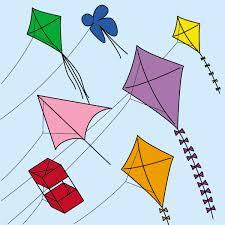
If you have a recycling collection during windy conditions, you can help us to keep your neighbourhood tidy by doing the following:
- Fasten the Velcro lids on your yellow and blue bags
- Put a lid on your red box and secure it in place
- Try not to overfill your red boxes - squeezing and squashing your plastic, cans and tins can help
- If possible, don't stack your red boxes.
- Bring your bins and containers in as soon as possible after collection.
These things help to stop your recycling from escaping and littering your neighbourhood.
If you need a new red box or lid, please order one online or call 01530 454545 to request one.
We are very grateful to our residents who help to clear up any escaped recycling. We're currently looking at different recycling container options to replace the boxes and bags as part of our Waste Services Review.
Bin collections in freezing weather
When freezing temperatures are forecast, we can have trouble emptying wheeled bins.
We'll try our best to fully empty frozen bins but sometimes the contents remains frozen and stuck to the inside of the bin, even after being lifted onto the vehicle which shakes the bin several times.
You can help our crews to empty your wheeled bins by:
- Avoiding putting loose rubbish in the black bin by bagging it up.
- Loosening your garden waste and bagged black bin waste ready for collection, if you can.
Extra recycling? Help us to collect it with these tips...
Glass and plastic/cans/tins 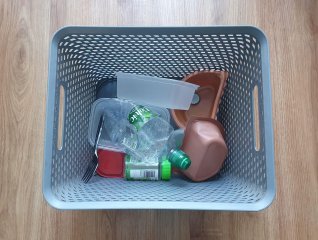
You can put extra red box recycling out in reusable plastic containers such as a washing up bowl or plastic storage boxes/baskets. Please make sure glass is always kept in a separate container to plastic/cans/tins/foil.
You can also order extra red boxes online.
Cardboard
Extra cardboard which does not fit in the yellow bag should be flattened to no bigger than 2ft x 2ft and left next to the red boxes, weighed down if you can.
Please also remove any packaging such as polystyrene, plastic film/wrapping and any plastic straps. We can only collect clean cardboard (without any food left on it).
Additional yellow bags can also be ordered online.
Paper
If you regularly have more paper than will fit in your blue bag, you can order another blue bag. If you only occasionally have extra paper to recycle, please try to spread the amount you put out over a few collections.
Recycling put out in plastic bags will not be collected by our crews due to the issues they cause. Find out how plastic bags cause problems.
Garden waste
If you have more garden waste than will fit in your bin, please take a look at our tips and advice for disposing of extra garden waste.
Saving money whilst reducing waste - a win for your wallet and the environment
It can sometimes feel like making an eco-friendly choice just isn’t affordable – especially at a time when many are feeling financially stretched. But there are still plenty of changes we can make that not only result in less waste, but they can save you money too!
Save energy and money 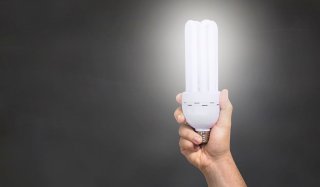
- Use LED bulbs – Each LED used in your home can make a lifetime saving of £180
- Turn down your wash – Washing at lower temperatures will help reduce energy use and is better for your clothes
- Defrost your freezer – A defrosted freezer costs around £150 less a year to run.
Repair it
It’s usually cheaper to repair a broken appliance than to buy a new one – especially if you can learn to fix it yourself.
There are a few groups around Leicestershire that can support you in repairing items.
- The repair bench (Coalville)
- Men in Sheds (Coalville)
- Leicester Fixers (Across Leicestershire)
- The Tech Shack (Coalville)
A good rule of thumb is to avoid spending more than 50% of the cost of a new product on repairing an old one. Otherwise it might be more cost-effective to replace the broken item!
Reuse it
Carrying a reusable water bottle not only saves the need to buy single-use plastic bottles of water, but you can have it filled up for free! Use the Refill app when out and about to check where your nearest refill point is, or just pop into the closest café or pub and ask them to fill up your bottle.
Reduce food waste 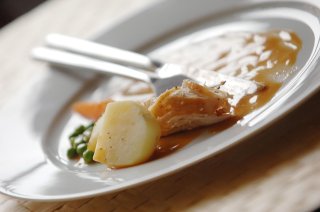
The average family of four can save just over £60 per month by reducing their food waste, so it’s kind to our bank accounts as well as the planet.
Creating a meal plan, writing a shopping list, doing one big shop and then sticking to the meal plan really helps to only buy what you need and make sure it is all used up.
Keep an eye out for the discount shelves which display items that have reached their ‘use by’ date. Many of the items on these shelves are sold at a reduced price and can be put straight in the freezer for use at a later date.
Heading on holiday soon? In Britain we throw away £500 million worth of edible food before we go on holiday each year. From checking your freezer to making a homecoming meal, this ‘Traveller’s check’ has some great tips to help you stop good food from going to waste.
Love Food Hate Waste have lots more tips for wasting less food whilst saving money.
Try cloth nappies 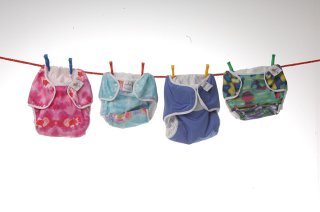
Gone are the days of terry squares and soaking. Converting to reusable cloth nappies from disposables can make a big difference to the amount of rubbish families with young children generate.
On average, a baby uses between 5,000 and 7,000 disposable nappies over a 2.5 year period. And this can cost between £735 - £1,211 but a switch to reusable nappies can save up to £600!
Even a switch to only using reusable nappies when at home, and then disposables when out and about could make such a difference to your bank account and the environment.
Find out more about making a switch to reusable nappies.
Recycling tips for a sustainable 'staycation'
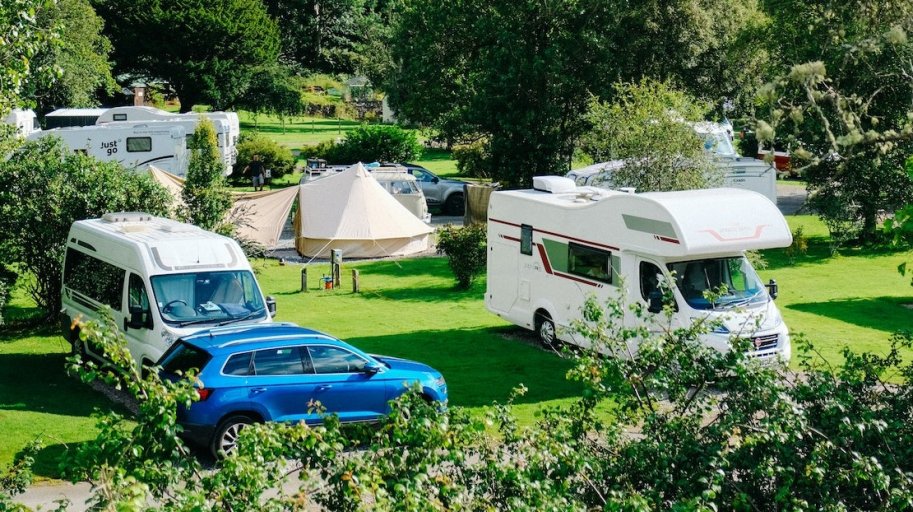
As it gets warmer, a staycation is on the horizon for many of us. Why not make it a sustainable one?
Recycle Now have put together a handy article full of really useful tips to help you recycle more wherever you're planning to holiday in the UK. Take a look!
Bin crew staff needed
Can you work as a casual waste crew member?
- All training and equipment provided
- Must be fit and able to walk long distances
- £11.41 - £14.74 per hour (depending on role)
If you can fill one of these casual roles, please get in touch: mick.hughes@nwleicestershire.gov.uk
Related Documents (2)
- Refuse & recycling collections policy (PDF Document, 0.62 Mb)
- Household Recycling Guide (PDF Document, 1.89 Mb)
Last updated: Wed 16 April, 2025 @ 15:32
